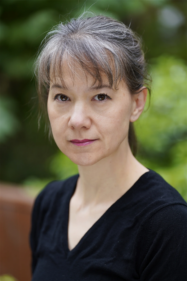
While for some contributors to this year’s Darwin College Lecture Series, tuning their intellectual focus to the topic of Revolutions may have required a little lateral thinking, for writer Tania Branigan it was an obvious fit. The foreign leader writer for the Guardian spent seven years as the paper’s China correspondent, and her book Red Memory: Living, Remembering and Forgetting China’s Cultural Revolution was the winner of the 2023 Cundill History Prize, a Sunday Times Book of the Year and Radio 4 Book of the Week. However, she points out that even in this case the terminology is conflicted.
“One of the questions is always to what extent the Cultural Revolution was actually a revolution – or whether it was essentially anarchy, or purely a reassertion of supremacy by Mao. That’s something people are still wrestling with.”
The ways in which people continue to wrestle with the impact and after-effects of the events of 1966-1976 are the focus of Branigan’s book, which approaches the legacy of the Cultural Revolution through the testimony of those who lived through it, and their descendants. The book makes clear the all-pervasive traces that decade has left on every aspect of Chinese life yet, Branigan says, it took some time to convince herself to focus her attention on that period of the country’s past.
“In some ways I was reluctant to write about it because as a news journalist you’re always trying to cover what’s new. I was busy just trying to keep up with the pace of change, but I realised that, although it wasn’t much discussed, the Cultural Revolution was everywhere and felt inescapable. It was clear that to make sense of now, I kept being drawn back to that era.”
Red Memory explores the intergenerational effects of trauma – the way its ripples echo and replicate across time – through interviews where the hesitancy of the speakers in sharing their experiences is evident.
“I always felt that news shouldn’t come at the expense of nuance,” explains Branigan. “It’s such a complex and contradictory subject, and people have such confusion around it – it’s so contested. I wanted the reader to have a sense of how difficult it is, how bitter the arguments can be…I wanted a sense of the messiness of the subject.”
Branigan has described her seven years covering China for the Guardian, as her ‘dream job’. She joined the paper in 2000, after graduating from London’s City University, and worked first as a reporter and subsequently as a political correspondent, before being posted to Beijing in 2008.
“The return of China to the forefront is just such an extraordinary story,” she explains of her lifelong fascination with the country.
“The richness of its culture and diversity, the pace at which it’s changing is astonishing. Anyone over 30 has a story of how their life has been transformed.”
Her role gave her the freedom to cover everything from politics to economics, culture to social transition. But increasingly she felt compelled to focus her attention on the recurring theme of the Cultural Revolution, continuously present yet rarely expressed.
“It’s something which people in the West have only a glancing understanding of as some form of youth uprising, or even as something kitsch,” she notes, of the way in which, for nearly 50 years, communist propaganda has been a staple of student wall art.
“But young people in China don’t fully understand it either because of the government.”
This deliberate opacity around the contested history in China means, says Branigan, that her book “will never be published there.” Not that she is any rush to see that happen.
“There are many excellent works by Chinese scholars which can’t be published now. Those are the ones which I would want to see made available to Chinese audiences.”
For those Chinese readers whom the book has reached, however, it has clearly been immensely powerful. Branigan is regularly approached after readings by members of the Chinese diaspora eager to share the impact of her words, and their own stories.
“It’s such a profound trauma for so many people,” she says. “It’s extraordinary to speak to them.”
Tania Branigan’s lecture, The Cultural Revolution, will take place at 5.30pm on Friday 8th March.
